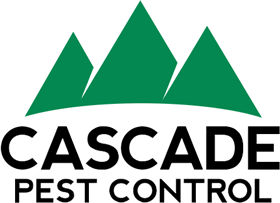Author: Kurt Treftz, Cascade Pest Control
Mice have been plaguing homes and businesses for ages, so there’s been a lot of research done about how to best get rid of them. From chemical services, traditional traps, and inventive DIY mouse contraptions, people have become quite creative in their venture to exterminate these pests.
That being said, there are some techniques that work better than others, especially when it comes to non-chemical solutions. We at Cascade Pest Control are dedicated to arming you with the proper knowledge to support your own mouse control needs. Read on for our recommendations when it comes to trapping mice on your own!
Mouse Control Mythbusting
Everyone’s situation is a little different, but there are some over-popularized DIY mouse control techniques that aren’t as effective at removing a mouse population:
- Oils, Soaps, & Natural Remedies: It’s been speculated that peppermint oil, soaps, and cayenne pepper can be used as an olfactory deterrent to mice. The idea behind this being that you’d line high-risk entrance points with the scent of these items and it prevents mice from entering. There isn’t any proof that this works long term, and it won’t be of any help if you already have mice in your home.
- Moth Balls: Some have repurposed these to target mice or other household rodents as a “natural” solution to pest control. What’s misleading about this is that mothballs contain pesticides & other chemicals, and it can be toxic to you or a pet to misuse them as a general pesticide.
- Owning a Pet: We’re all familiar with Tom & Jerry or at least the idea of cats being natural mousehunters. Hunting dogs also have a reputation of paying their rent by controlling rodent populations. Research has shown, however, that cats & dogs aren’t a reliable means of mouse control, especially if you own one or the other. Some studies found that mouse control increased in spaces that housed both a cat and a dog, but that’s only if your pet is inclined or interested in such a pass-time.
- Cheese-Baited Traps: Despite what the media has portrayed, mice aren’t as attracted to cheese as you might think. They’re naturally more prone to feeding on seeds or dry goods that are easily accessed in the pantry or cupboards. Peanut butter tends to be a more effective bait, or even lint, newspaper, or other nesting materials in the winter.
- “Humane” Mouse Traps: No-kill traps can definitely be effective if you invest in the right one. Simple adhesive and trap-and-release devices can end up creating more of a mess in the long run, however. Un-weighted glue traps run the risk of letting the rodent move around, which makes it more challenging for you to find & dispose of the critter. If your box trap isn’t heavy duty enough, and you don’t check it regularly, you run the risk of the mouse urinating in panic & that mess can cause damage to your space. Similarly, if you’re not able to safely remove the rodent outside of your home, you run the risk of being harmed yourself.
Effective Mouse Control Techniques
Traps are certainly an effective means of handling small-scale mouse infestations. We recommend no-touch or no-view box traps–while these do tend to yield a dead mouse, it’s a safer disposal & more cleanly overall to not have to combat mouse waste after they’re trapped. If you are committed to no-kill traps, we recommend finding something that has an easy release technique and that you go far away from your home to release it to avoid re-entry.
As mentioned earlier, baiting your traps properly is another important factor for mouse control. Avoid providing too much bait to your traps, as this will decrease the chance that your target can sneak away with a portion of the bait without triggering the entrapment mechanism.
If you’re truly invested in a “natural” method of mouse control, we encourage you to take the route of better securing your space from mice entering in the first place. Seal doorways, roofing panels, crawlspace gaps, etc, properly store food so as to not attract unwanted visitors, and regularly check dark, secluded spaces for signs of rodent nesting. These practices work to proactively control mouse activity and ensure that you’re able to catch any signs of them early.
Interested in mouse control services to further support your efforts? Call Cascade Pest Control today at 888-989-8979 to get a quote!
